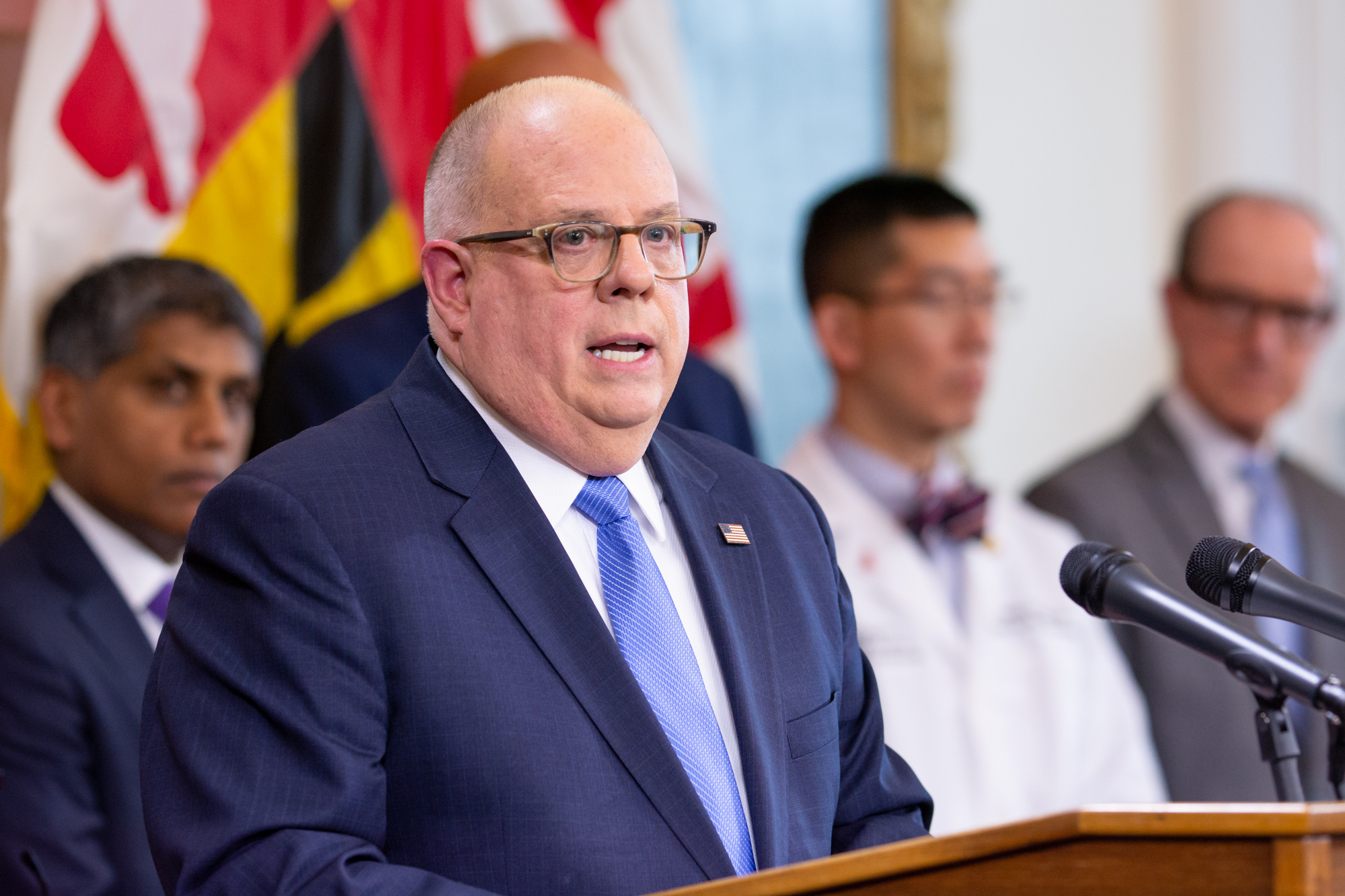Views expressed in opinion columns are the author’s own.
Unemployment generally isn’t a voluntary choice.
According to the United States Department of Labor, a person is classified as unemployed if they “do not have a job, have actively looked for work in the past 4 weeks, and are currently available for work.”
This definition seems simple and straightforward, but some people do not seem to understand that or take it seriously, including Gov. Larry Hogan.
On June 1, Hogan announced that Maryland would “discontinue enhanced pandemic federal unemployment benefits and reinstate work search requirements” in early July. Many unemployed individuals had received amenities through the federal programs, such as an additional $300 per week along with their regular state unemployment benefits.
After multiple lawsuits, on July 13, the Baltimore Circuit Court blocked Hogan’s attempt to discontinue the enhanced federal unemployment benefits early. But while the court blocked Hogan’s efforts, this is still a broader issue across the country.
Unemployment — and the palpable consequences that follow it — needs to be taken seriously by politicians. Not only should extra unemployment benefits not be limited —they should also be expanded.
Hogan, like some governors, said he made this decision to improve the state’s chances for economic recovery. And, perhaps more impactfully, he explained that businesses are struggling to hire people due to a worker shortage.
First of all, the pandemic is not over. Although many states have a high vaccination rate and are striving toward economic recovery, that does not mean people are not still struggling from the impacts of COVID-19.
Many families lost their homes or jobs during the pandemic and may still be struggling to find work that matches their skillset.
Child care still hasn’t returned to how it was before the pandemic, and some parents may not be able to go back to work if they cannot find child care for their children.
Beyond economic impacts, people may still be dealing with hospital bills and medical expenses from the pandemic or long-term health complications, which may be expensive and could prevent them from working.
This is especially important because people from underrepresented communities are more negatively impacted by the pandemic. Cutting these extra benefits hurts people from these communities and continues to perpetuate the cycle of inequality.
Some politicians insinuate that some individuals just rake in unemployment checks and sit at home — a frankly insulting proposition. This shows a clear bias against these individuals and prevents them from getting the help they need.
Additionally, Hogan has said, “We have a critical problem where businesses across our state are trying to hire more people, but many are facing severe worker shortages.” Many are essentially attributing the increased unemployment benefits to a worker shortage, which hasn’t been proven.
The worker shortage claim ignores that people may be searching for jobs and trying to find them, but cannot. Their inability to find a job could be due to an injury, disability or record — or they simply cannot find a job they are a good fit for.
More importantly, this claim shows these politicians don’t know how the law actually works. To qualify for unemployment, someone must be actively searching for work — so individuals aren’t actively avoiding finding a job.
This pandemic has put the issue of unemployment benefits in the spotlight, but the problem extends beyond this period. People especially need the help in a global pandemic, but they need the help during normal times, too.
Hogan is one of at least 25 Republican governors in the U.S. who has tried to end the enhanced federal unemployment benefit in their state. Through these actions, these Republicans seem to say the government does not have a responsibility to help lower-income people, and these people may not deserve help.
This line of thinking neglects what the government fundamentally is here for: to support individuals during difficult times.
Hogan and these other governors are missing what is supposed to drive their decisions — compassion. Politicians need to focus on improving the lives of their constituencies, and increasing unemployment benefits long-term does just that.
Courtney Cohn is a rising junior journalism and government and politics double major. She can be reached at cncohn1@gmail.com.



